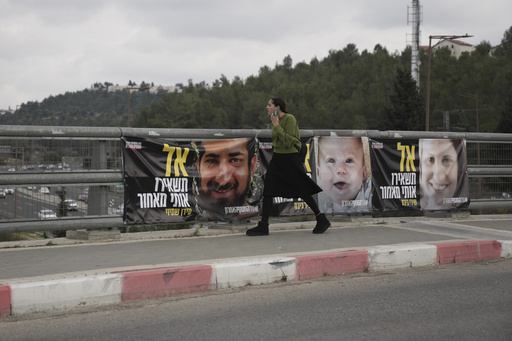
Israel’s Cabinet has agreed to a ceasefire arrangement concerning Gaza, marking a potential halt to the ongoing conflict and prescribing the release of numerous hostages held by militants, as well as Palestinians detained by Israel.
The decision to approve the agreement came in the early hours of Saturday following a lengthy session held by the full Cabinet. According to the Prime Minister’s office, if the deal passes, the ceasefire could initiate on Sunday with the onset of the hostages’ release. This ceasefire would represent the second of its kind achieved throughout 15 months of hostilities.
The framework of the deal indicates that during the next six weeks, 33 hostages are to be freed in exchange for hundreds of Palestinian prisoners. Additional hostages, which include male soldiers, will be released in a subsequent phase to be negotiated concurrently with the initial phase. The militant organization Hamas has stated it will not proceed with the release of the remaining captives without a comprehensive ceasefire and the full withdrawal of Israeli forces from Gaza.
Israel’s Justice Ministry reports that about 95 Palestinian prisoners will be released in the first stage of the ceasefire. The war has claimed over 46,000 lives in Gaza according to reports from the area’s Health Ministry, although the exact number of militants among the deceased has not been disclosed. Israel asserts it has killed over 17,000 fighters, yet has not provided concrete evidence to support this claim.
In a related update, the Israeli Justice Ministry has released a list detailing 700 Palestinian prisoners to be freed under the ceasefire agreement aimed at halting the conflict with Hamas in Gaza.
This list became available early Saturday, shortly after the Cabinet sanctioned the ceasefire, which involves militants’ release of hostages in return for the release of numerous Palestinian detainees. The release of the prisoners is scheduled to begin no earlier than 4 p.m. local time on Sunday, coinciding with the commencement of the prisoner exchange.
The list comprises individuals affiliated with Hamas and Islamic Jihad, some serving lengthy sentences for serious crimes, including murder. Notably, the high-profile Palestinian prisoner Marwan Barghouti does not appear on the list. Barghouti, viewed by many Palestinians as a future presidential contender, has been a critical figure in the West Bank since serving as a leader during the second Palestinian uprising in the early 2000s. Hamas has pushed for his release within any ceasefire context, which Israeli officials have dismissed.
Turning to the United Nations, it has been noted that Israeli military activity in the established buffer zone between Israel and Syria appears to violate a 1974 agreement.
Major General Patrick Gauchat, who oversees the U.N. peacekeeping force in the region, reported that Israel’s actions have been communicated as breaches of the agreement. Israel has justified its presence as temporary for preventing armed militants from occupying the area following the downfall of Syrian President Bashar Assad. Residents in the area have requested the withdrawal of Israeli forces, citing the negative impacts on agricultural work due to roadblocks.
Following the Cabinet’s announcement on the ceasefire, significant discussions have continued regarding implications for the ongoing humanitarian crisis. There remains a pressing need for infrastructures such as electricity and clean water systems in Gaza after the prolonged conflict.
Meanwhile, Palestinian officials from the West Bank have expressed readiness to take full administrative responsibility for Gaza, although there remains uncertainty regarding governance following the conflict. Any plans would potentially involve local Palestinians unconnected to Hamas, but Hamas has issued threats against collaborators with Israeli forces.
An escalated concern was also highlighted by the World Health Organization (WHO), which emphasized the dire consequences for humanitarian operations should the ceasefire fail to materialize. The WHO underscored the necessity of increased humanitarian aid entry to Gaza to alleviate the critical needs of its population.
The unfolding situation continues to attract attention on the global stage, with various leaders providing comments and support as the ceasefire deal awaits final approval.

